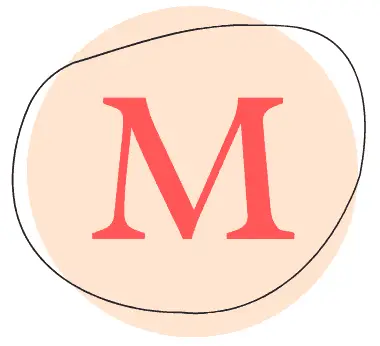Pros and Cons of Breastfeeding
Mothers of newborn babies have many tough choices to make. The toughest one and the first one that comes up is the choice to breastfeed. This is an extremely personal choice although there has been a surge in the breastfeeding movement. The topic is still controversial to the extent that often mothers who choose not to feed end up feeling judged for their choice. It is important to understand breastfeeding pros and cons before deciding what works best for you and your baby. We, therefore, make our best attempt at explaining the benefits and the discomforts of breastfeeding so that you as a mother can make a more informed choice without strong opinions from family and friends being thrust upon you.
The importance of Breastmilk
Breast milk is loaded with nutrition for your infants. It has the ideal composition of fats, proteins, and proteins. Breast milk also consists of the most potent antibodies that can help infants fight off viral and bacterial infections. The colostrum that comes before the breast milk provides an infant with the protection required to stay healthy while their immune system is developing.

Benefits of Exclusive Breastfeeding for Babies
- Multiple benefits are bestowed upon infants because of breast milk. Here, we list some of the pros of breastfeeding:
- Infants who are on mother’s milk tend to gain weight appropriately and are not susceptible to becoming overweight easily.
- Babies who exclusively breastfed are less vulnerable to allergies, asthma, and ear infections too.
- The American Academy of Pediatrics also advocates that skin-to-skin touching makes your baby feel more secure and it improves the mother-child bond.
- Sudden Death Infant Syndrome is also known to be lower amongst breastfed infants.
- Although more research is required, it is advocated that breastfeeding also brings down the risk of obesity, diabetes, and certain cancers as well.
- Breast milk lowers the chances of Necrotizing Enterocolitis which mainly affects premature infants and is a fatal stomach disease.
Benefits of Breastfeeding for Mothers
- It is not only your little bundle of joy that benefits from breastfeeding. Here are some comforts afforded to the mother because of breastfeeding:
- Postpartum weight loss is faster because breastfeeding burns calories.
- Breastfeeding causes lactational amenorrhea, that is, no menstrual cycles for the duration that a mother chooses to breastfeed.
- The hormone oxytocin which is released during lactation can help the uterus return to its original size and could lower uterine bleeding after the birth.
- Oxytocin also lowers the chances of postpartum depression in women.
- Breastfeeding, especially before the age of 30, is known to reduce a woman’s risk of breast cancer and ovarian cancer.
- It is said that breastfeeding reduces the risks of osteoporosis as well.
Other Benefits of Breastfeeding
- The benefits of breastfeeding are not limited only to the baby and mother as mentioned below:
- Breastfeeding is known to be more economical than formula feeding even counting the cost of a breast pump which has become essential for working mothers and even mothers who stay at home.
- Breastfeeding saves mothers a lot of time in terms of sterilizing, heating water for formula, measuring to mix formula etc.
- Breastfeeding is more convenient, especially at night when your infant requires 2-3 feeds and mixing formula can become tiring.
- Nursing mothers have a lot less luggage to cart around when travelling, flying, or just catching up with a friend for lunch.
- Mother’s nipple works as an excellent pacifier at times when an infant is having a melt-down.
Having said that, there are known downsides to breastfeeding which we attempt to explain so that you are well aware of the advantages and disadvantages of breastfeeding through this article.
Disadvantages of Breastfeeding
Every mom has been advised that the ‘breast is best’ for baby exclusively up to 6 months and up to one year of age along with other solids. But it is hard work, and there are known cons of breastfeeding. Read on to understand the discomforts and disadvantages of breastfeeding.
1. It involves dietary restrictions
Nursing mothers must be very wary of what they eat because the food passes through the milk to the baby. Often heavy carbohydrates can cause the baby to become gassy and induce colic in the infant. Also, alcohol passes through milk and is dangerous for infants, hence alcohol consumption needs to be limited.
2. There is a difficulty in understanding how much milk baby is consuming
Mothers who are breastfeeding often worry about how much milk their infant is consuming. Unlike formula, breastmilk cannot be measured, and you are in doubt if you have left your baby hungry or have overfed your child.
3. Breastfeeding requires appropriate clothing
To nurse comfortably, mothers need to invest in nursing bras, easy open shirts, or button-down clothes. This is an additional expense that most mothers do not account for beforehand.
4. It is uncomfortable to nurse a baby in public.
There is some stigma attached to nursing in public. Many people feel uncomfortable when a mother breastfeeds in public, leading to instances of shaming. Many mothers too like being discreet and do not feel comfortable nursing in public.
5. Getting started is a challenge for several mothers
Several women have had challenges with the baby not latching properly. This can make breastfeeding a difficult experience in the beginning.
6. You are your infant’s sole source of food
Unless you pump your milk into a bottle, nobody gets to feed your infant except you, and it becomes very tiring for first-time mothers. It means that the mother never gets a break.
7. Thrush, Mastitis, and Blocked Ducts
Sometimes the milk ducts at the nipple get clogged. This can lead to inflammation of the breast tissue and extending milk ducts causing an infection known as mastitis. It is painful, causes fever and chills. Another problem while breastfeeding is thrush which is a fungal infection that could occur when your nipples are sore or cracked.
Conclusion
As a woman’s body adjust to postpartum requirements, some mothers master the art of breastfeeding and get comfortable with it. Some others might find it difficult and choose to discontinue. With adequate support from medical professionals and family, a woman can overcome any problem and choose whether she wants to breastfeed or give her baby infant formula. Ultimately, a healthy baby is the result of a healthy and happy mother, and a mother’s feeding options should not be put to trial under any circumstance.



